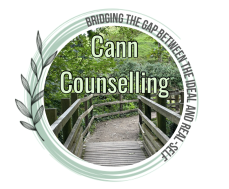Welcome to
Cann Counselling
Having the courage to seek counselling is the first and biggest step.
Welcome
My name is Tanya, and I am a qualified person-centred counsellor providing integrative therapy to people in Somerset, North Somerset, Bristol and surrounding areas. Being an integrative counsellor means using a flexible and adaptable approach to counselling by combining various theories and techniques to meet the unique needs of each client. My counselling room is situated in The Stable, Weston-S-Mare, and due to working online as well as face to face, I cover not only the surrounding areas including Bristol, Worle, Highbridge, Burnham on sea, Cheddar, Wedmore, Shipham and Axbridge, I can also go as far a field as required using my online platform.
My training started following the loss of my daughter in October 2017. I had lost all meaning and purpose in my life. I didn’t know how I should begin my day-to-day, or who I was.
I found it difficult when trying to access local affordable counselling for myself and my family, with nothing available privately, and a 9 month wait list for the NHS. This was when I decided to start my training at Weston College, North Somerset, to enable me to help others who are living with the effects of bereavement, and who are struggling with their mental health and well-being.
By June 2021 I had completed my level 2 and 3 counselling skills at Weston college. Alongside this I completed and passed the foundation training with CRUSE and became a bereavement volunteer. In September 2021, I began my counselling degree at UCW (university centre Weston). Then in July 2023, I qualified as a person-centred counsellor and opened my private practice – Cann Counselling.


While training I worked at a local mental health charity in Somerset, where I completed over 150 hours working with clients from age 12 through to adults. I have worked with clients living with trauma as an effect of grief and loss, self -harm, OCD, intrusive thoughts, suicidal ideation, disordered eating, historic rape, and sexual assault, inter-generational trauma, anxiety, and depression, all of which resulted in issues with their mental health and well-being. My training saw me take a bigger interest in children and young people’s mental health, and a want to ‘prevent rather than cure’ mentality became even more evident within me.
I work in a person-centred manner, alongside the integration of other modalities where appropriate. I integrate CBT into my sessions by way of socratic questioning and work sheets, including thought records, a particular phrase I like to use is 'taking thoughts to court' when working with irrational thinking patterns. I like gestalt theory, it believes a person is more than just their individual parts, a complete entity of body & mind, and focuses on the client’s present moment and environment. I also like to integrate creative therapies into sessions, such as feelings and mood cards, and games such as emotions Jenga. I have recently completed training for Sand tray therapy and Walk and Talk therapy, of which I will incorporate into my practice as and when suitable. The use of timelines and safety or care plans where I deem appropriate are utilised for the individual client.
I believe every client is the expert in their own life. and together, with me as a guide, I aim to help them in their journey to a better mental well-being state of mind.
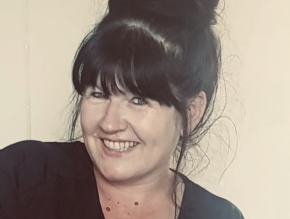
My Approach
As a counsellor I offer my clients a safe, non-judgmental and empathic space in my therapy room in Somerset where they can explore their issues. As mentioned, as a counsellor in session, I integrate several other modalities into my work, of which are dependent on the client and their presenting issues. refered to as integrative therapy. Being an integrative counsellor means using a flexible and adaptable approach to counselling by combining various theories and techniques to meet the unique needs of each client. One modality I regularly work with is Gestalt. Of which emphasises that the whole of anything is greater than its parts. Gestalt means 'placed' or 'put together', and looks at the human mind and behaviours and seeks to understand how the human brain perceives experiences, and focuses on the effect in the 'here and now', It looks at how your past influences and affects how you feel in 'this moment' rather than how you felt back then. Counselling can help to relieve the client of their thoughts and worries and together we can fill your 'toolbox' with strategies that will allow you to be free of your anxious feelings and bring a new understanding of your 'self' to the surface. I have recently completed training in trauma with Carolyn Spring, sand tray therapy and walk and talk therapy with Devon counselling College.
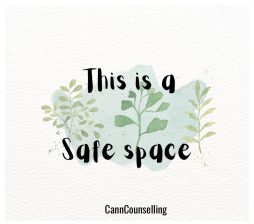
People contact me for help with a wide range of issues. Here are a few of the more common difficulties that I can support you through counselling:
Feelings of stress or anxiety
Panic attacks
Relationship problems
Grief through significant loss and bereavement
Problems with addiction
Historic trauma
Depression
Problems with confidence or self-esteem
Anger management
Issues relating to sexuality
Difficulties at work or in retirement
Problems with family or school life
SPEAK IN CONFIDENCE
Counselling takes place in a safe space, where you can meet with someone who will listen with sensitivity and empathy - and without judgement. In the therapy space thoughts and feelings can be expressed freely and in confidence.
A PROBLEM SHARED...
Trouble with a relationship, anxiety, self-esteem, or panic attacks, mood swings or depression, all that may be the result of past traumas, bereavement or a significant loss - can lead many people to face difficulties in their everyday lives and can be hard to get on top of. Counselling gives the client a set of tools that can be used to help gain a better understanding of what’s causing these problems - and how you can move towards managing or resolving them.
MAKE BETTER, HEALTHIER NEW CHOICES
Working together I can help you gain greater insight into the difficulties you are facing, help you understand why you act or react to them the way you do, and see how you can start to make better, healthier choices moving forward. Your mental-wellbeing will be the important factor in our sessions together.
CONTACT ME
Feel free to contact me if you have any questions about how counselling works, or to arrange an initial assessment appointment. This enables us to discuss the reasons you are thinking of coming to counselling, whether it could be helpful for you and whether I am the right therapist to help.
You can also call me on 07368 855588 if you would prefer to leave a message or speak to me first. I am happy to discuss any queries or questions you may have prior to arranging an initial appointment.
Fees
Sessions with me are 50 minutes in length.
Standard fee - £40 per 50 minute session.
I work my fees on a 'means tested sliding scale’.
Students/OAP’s/Evidence of benefits (not working) - £20 per 50 minute session
Student Counsellors/Working with evidence of universal credit/other benefits - £30 per 50 minute session
I offer a free 15 minute initial session, of which can be done face to face, online, or over the telephone. Please get in touch to arrange.
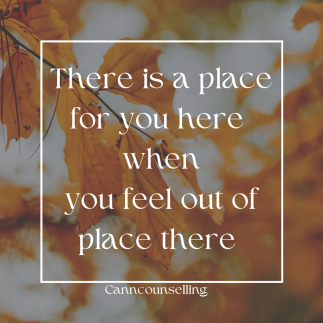
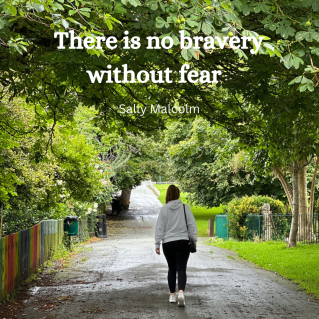
Frequently Asked Questions
Counselling is usually a good way to help with a current problem; something that can be discussed and - hopefully - resolved within a limited number of sessions. Over a certain number of weeks the understanding of the problem improves and away forward becomes clear. Therapy often describes work that goes a bit deeper, towards more substantial life issues and problems having a deeper effect on the client’s life. Therapy often requires a long-term approach, so the number of sessions can be open-ended.
Which option is most suitable depends on the client and the difficulties they are facing. In some cases counselling works well as an ongoing, longer-term option - or therapy can manage to resolve an issue in just a few sessions.
How long a period of counselling lasts will vary from person to person and depend on the depth of the issues they are facing. For some people a couple of sessions helps to bring their problems into focus, and they feel ready to move forward; other problems may require more of an open-ended approach.
Before we begin any work we will agree on the number of sessions we’ll undertake, and at the end of that number review our progress. As long as we both agree further therapy will be of benefit to you, sessions can continue.
My aim is to offer a first appointment - known as an initial assessment - within 1-2 weeks. Then we would arrange a set number of counselling sessions to take place at the same time every week, that is convenient for you and where I have availabity. How quickly these sessions can begin will depend on the availabity of that free ‘slot’.
Everything that is said within the counselling room is private - this is one of the main ways counselling and therapy differ from talking to a friend or relative. Once you are comfortable with the format of weekly sessions and the safe space they provide, you will find the freedom to speak in confidence is of great value.
Note that there are some situations where you may be a risk to yourself or others, and there the law requires that I notify an authority; in these cases I may not be able to keep total confidentiality. Breaking confidentiality is very rare though, and only happens after the person concerned has been informed.
Usually I am asked this question by people who are nervous about entering into counselling, or when they are looking for support in coming to see a therapist. This anxiety is understandable, but a key aspect of therapy is that you should feel free to talk about any issues you feel are important to you. Having someone else with you who can be connected those issues makes this opening-up more difficult, so for this reason I do not see clients accompanied by friends or family.
© Tanya Russell
Powered by WebHealer
